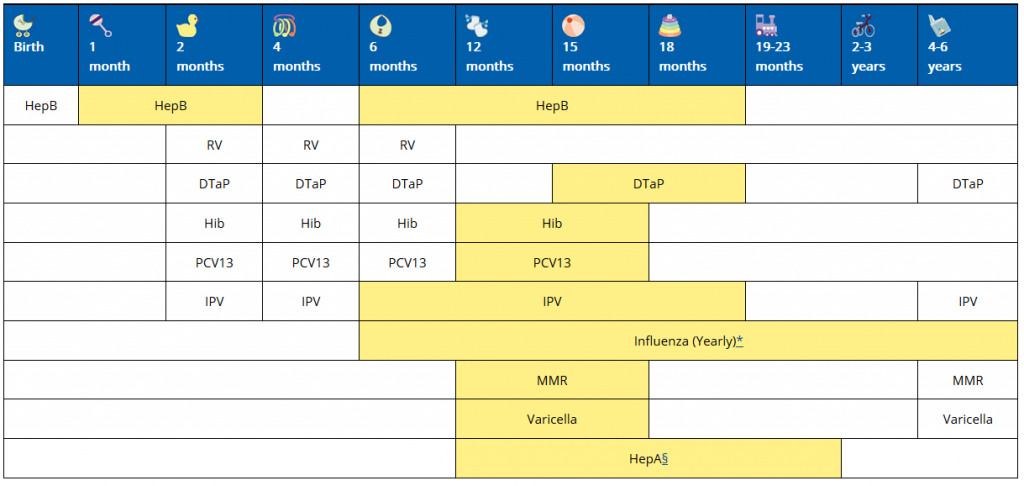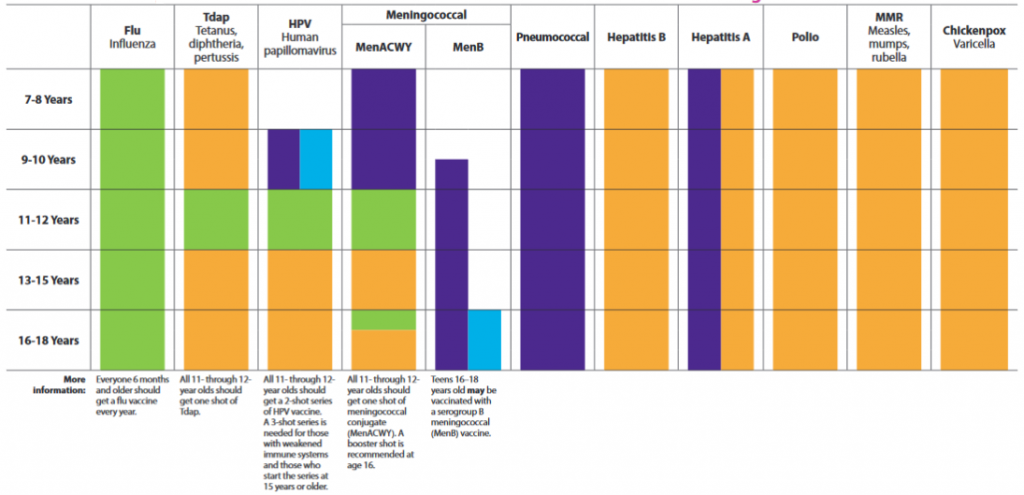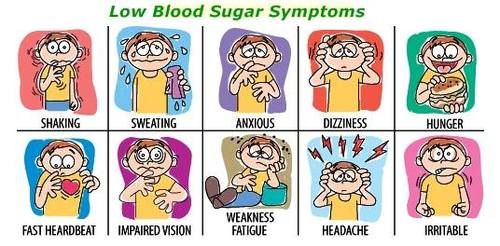
Attention deficit hyperactivity disorder (ADHD) has been a continuous sore subject throughout the media, with many myths and ideas of what this disorder is, the causes, and if children actually outgrow ADHD. I am here to help you debunk these myths.
Let’s start: what is ADHD?
ADHD is a neurological developmental disorder that is correlated with inattention, impulsiveness, and hyperactivity. The attention levels of children diagnosed with ADHD are considered inappropriate for their age group, trouble concentrating, difficulty in self-restraint, fidgetiness, and difficulty sitting in one place for a period of time. These symptoms must be present for at least six months or longer before a diagnosis will be made, and are often seen before the age of 12.
What Causes ADHD?
Contrary to what has been heard across the media over the last several years, your parenting style DOES NOT cause your child to have ADHD. Watching too much television and playing too many video games does correlate to your child’s diagnosis. Because this is a neurological developmental disorder, it is hard to say what exactly is the cause. However, there are many risk factors that could increase the vulnerability of a child such as genetics, cigarette smoking, alcohol or drug use during pregnancy, exposure to environmental toxins during pregnancy, low birth weight, or brain injuries.
What Are the Symptoms?
Symptoms correlating with ADHD can have a lasting effect on social, academic and occupational development for someone. Symptoms correlated to which parts of the brain are affected by this disorder. Those with motor problems were said to have high risk for learning deficits, lifestyle skills, as many activities are correlated to those things, such as feeding, dressing and physical activities, and poor social interpersonal relationships, These findings are correlated with higher diagnosis of depression and poor self-esteem in those with ADHD (Pila-Nemutandiani, Pillay, Meyer, 2018).
Emotional intelligence is a big complication of ADHD, defined as the ability to comprehend feelings of others and one’s self, utilizing those feelings to cope with daily demands, adaptability, empathy, managing stress, self-motivation and the ability to establish successful relationships (Kaypaki, Tamam, 2019). Those with ADHD are said to have a low emotional intelligence, associated with poor coping strategies, adaption skills, and higher frequency in depression.
Can My Child Outgrow Their ADHD?
Dr. Russel Barkely of the Medical University of South Carolina, stated in his lecture “ADHD: Essential Idea of Parents” (2013) many of the hyperactivity symptoms are outgrown by the late teen years, but becomes more of an “internal hyperactivity” where it is an internal need to be constantly moving and doing something, where their mind is constantly racing, rather than their body. Because of a lower emotional intelligence in those diagnosed with ADHD, these individuals have poorer coping strategies, adaptation skills, and a higher frequency of depression. These actions are often highly correlated with alcohol, smoking and drug abuse, poor coping with stressful life events, higher mental illness disorders, such as depression, anxiety, and bipolar disorder, and aggressive and other addictive behaviors. If treatment is started early and effective, one diagnosed with ADHD can have a higher emotional intelligence, correlated with better academic performance, work performance and overall psychological well-being and life satisfaction. Those diagnosed with ADHD at an early age, with the inability to carry on lasting friendships in childhood and adolescent years, often continue into adulthood (Kaypaki, Tamam, 2019). As many as 60% of children with ADHD can continue to have significant impairments in in social, academic, and occupational functioning, also correlating to incarceration and substance abuse (Mahadevan, Kandasamy, Benegal, 2019).
Can Someone Be Diagnosed with ADHD as an Adult?
A majority of the ADHD diagnosis are between the ages of 5 and 12 years old. It is rare for adults to be diagnosed, however, it is possible. Those diagnosed in adulthood are often females, and have impairments correlated to traffic accidents, criminal behavior, incarceration, suicide attempts and co-morbidities.
What Can We Do for Treatment?
First and foremost, you need to contact your pediatrician. Your pediatrician will first want to rule out over problems, such as thyroid problems, and sleep or seizure disorders. The most important part is coming to the correct diagnosis. Behavioral therapy, counseling, education interventions (such as extra help), and different medications, such as Vyvanse or Adderall, are just a handful of actions that could be taken for treatment to be effective. Communication between yourself and the healthcare provider about your child should be frequent, and any changes in behavior or new symptoms should be brought up. Long term treatment plans should be somewhat flexible as the child grows up, including changes in medication or dosages if needed, and have the ability to be adjusted to a new environment. If treatment is initiated, and depending on what age, another diagnosis of conduct disorder (CD) or major depression disorder (MDD) can be correlating factors in the extensiveness of ADHD in adulthood.
In Conclusion:
Throughout the media, the need for proper education is clear. The causes of ADHD presented in the media should be falsified; a child does not become diagnosed with ADHD because of “bad parenting”, watching too much TV, or playing too many video games. Although the media often portrays the idea that children with ADHD outgrow their symptoms, this is falsified, as instead, those diagnosed with ADHD are correlated to other psychiatric disorders, specifically anxiety and depression. Increased risk with other actions in adulthood are frequently correlated with ADHD. With different therapies, including psychotherapeutic interventions, mediation, and pharmacologic use, symptoms of ADHD can be settled and more controlled. However, the patient does not outgrow their ADHD diagnosis and must continue to work on controlling symptoms and how these affect their everyday life.
References
ADHDtips. (2013, June 16). ADHD: Essential Ideas for Parents – Dr. Russell Barkely. Retrieved May 4, 2019, from https://www.youtube.com/watch?v=YSfCdBBqNXY
Kaypaki, G. Y., & Tamam, L. (2019). Emotional intelligence in attention deficit hyperactivity disorder. Current Approaches in Psychiatry, 11(1), 112-119.
Mahadevan, J., Kandasamy, A., & Benegal, V. (2019). Situating adult attention-deficit/hyperactivity disorder in the externalizing spectrum: Etiologcal, diagnosit, and treatment considerations. Indian /journal of Psychiatry, 61(1), 3-12.
Phil, D. (2016, September 26). Is ADHD Caused by Poor Parenting or Watching Too Much TV? Retrieved May 4, 2019, from https://www.youtube.com/watch?v=cDVoepTKAAI
Pila-Nemutandiani, G. R., Pillay, B. J., & Meyer, A. (2018). Gross motor skills in children with attention deficit hyperactivity disorder. South African Journal of Occoupational Therapy, 48(3), 19-23.






